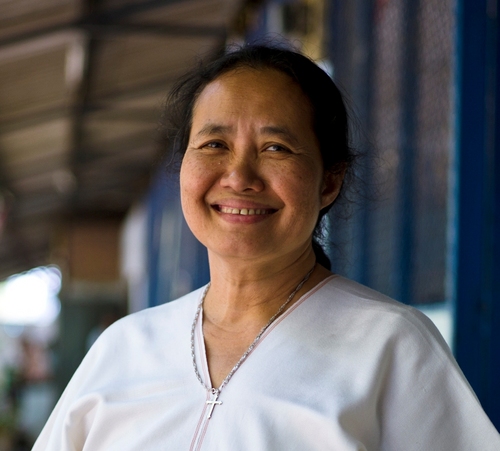Mae Tao Clinic – Mae Sot, Thailand

Dr Cynthia Maung, an ethnic Karen from Rangoon, has spent more than 20 years saving the lives of thousands of Burmese at the Mae Tao clinic on the Thai-Burma border.
The Mae Tao Clinic (MTC), founded and directed by Dr. Cynthia Maung, provides free health care for refugees, migrant workers, and other individuals who cross the border from Burma to Thailand. People of all ethnicities and religions are welcome at the Clinic. Its origins go back to the student pro-democracy movement in Burma in 1988 and the brutal repression by the Burmese regime of that movement. The fleeing students who needed medical attention were attended in a small house in Mae Sot. In recent years, Dr. Cynthia has gained international recognition and accolades. She received the Jonathan Mann Health and Human Rights Award in 1999, the Foundation for Human Rights in Asia’s Special Award from Japan in 2001, the Van Heuven Doedhart Award from the Netherlands in 2001, Magsaysay Award for Community Leadership in August 2002 (dubbed the “Asian Nobel Peace Prize”) and was a nominee for the Nobel Peace Prize in 2005.
Since 1989 MTC has grown, from that one small house to a large complex of simple buildings that provide a wide variety of health services to different groups of people. Today it serves a target population of approximately 150,000 on the Thai-Burma border. Exact numbers are hard to calculate because of the fluidity of the population. About 50% of those who come to MTC for medical attention are migrant workers in the Mae Sot area; the other 50% travel cross-border from Burma for care.
The clinic is located in Mae Sot, only a few kilometers from the Burmese border. It began as a small operation, with very few supplies and medicines. Over the years, its reputation has grown among the migrant population and inside Burma as a center that provides free, quality medical treatment. In 1989, the clinic provided health care for 1,760 patients; in 2009, the clinic treated nearly 100,000 patients.
Today the Clinic’s services include internal medicine; pediatrics; surgery; reproductive health and obstetrics; a laboratory and blood bank; primary eye care and eye surgery; prosthetics and rehabilitation; HIV/AIDS prevention; malaria management; and TB case finding and referrals. The Clinic also has many health worker training programs. Most of the health workers who graduate from these programs return to their villages inside Burma to provide much-needed health care. Others choose to serve in the refugee camps in Thailand and a small number stay on at the clinic.
Dr. Cynthia has built and sustained an institution of importance and quiet dignity. For the past 21 years, it has been serving the community and saving lives. But it does more than that. While the clinic members are grateful to their Thai hosts, they want to return home. Until that day arrives, the existence of Mae Tao Clinic gives hope to all people who look forward to a more just Burma.
For more information about Mae Tao Clinic go to: www.maetaoclinic.org and www.facebook.com/MaeTaoClinic

